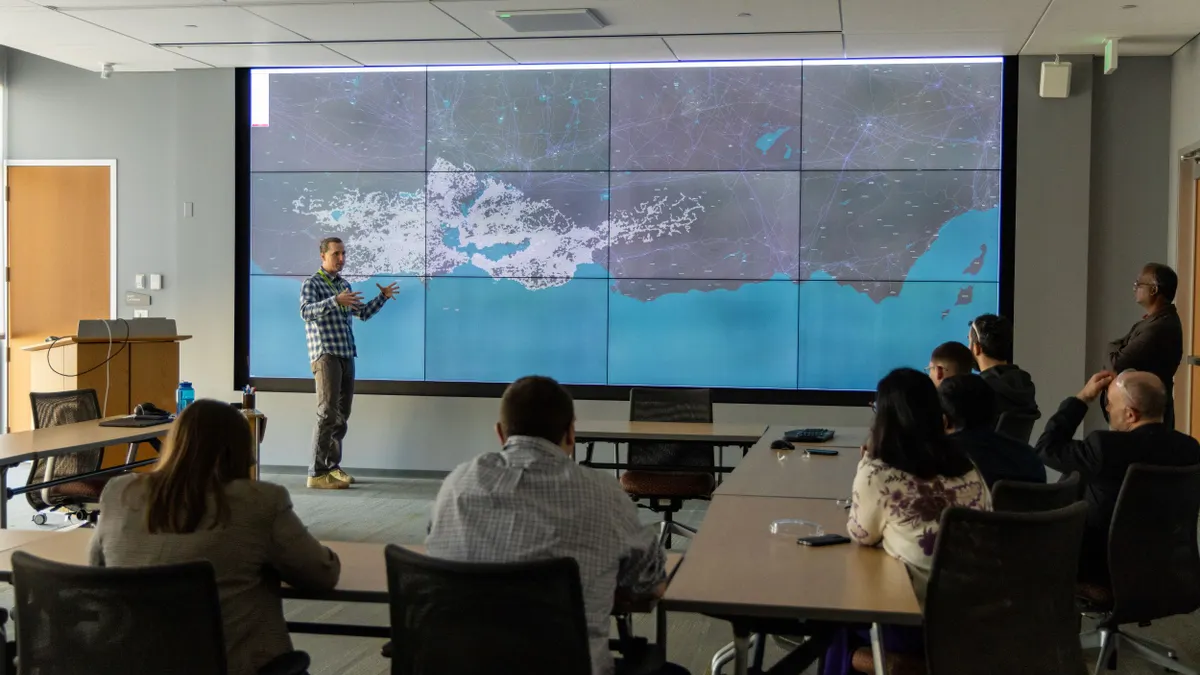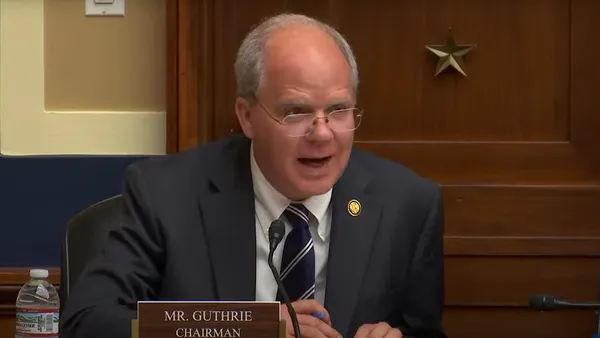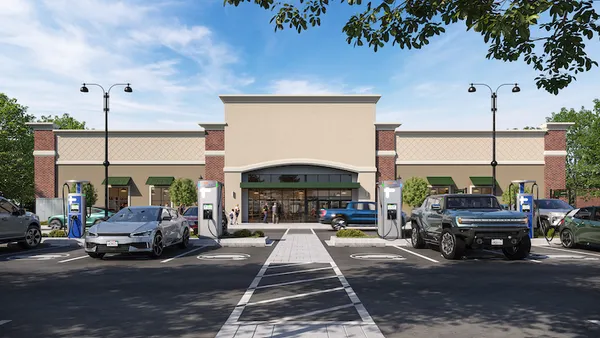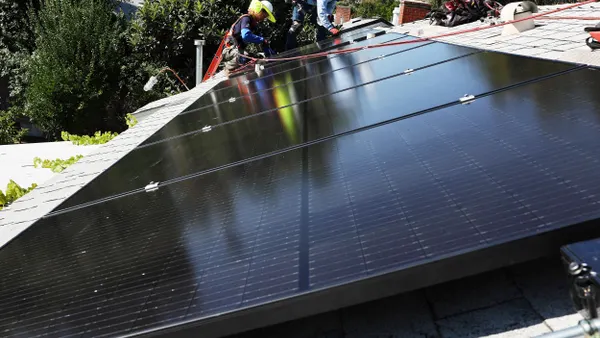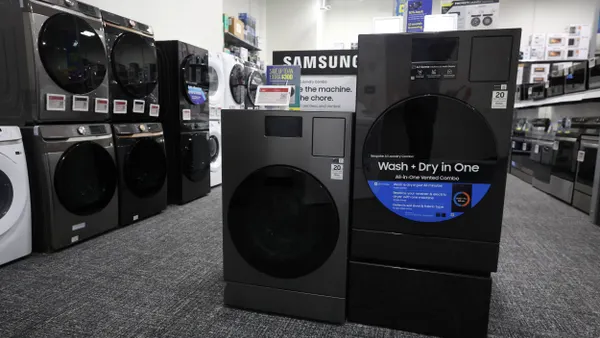Dive Brief:
- Pacific Gas & Electric selected BMW following a competitive solicitation to manage a minimum of 100 kilowatts of electric demand on the utility's system, similar to other large industrial and commercial customers do today as part of demand response programs.
- BMW will enroll up to 100 customers of its new BMW i3 electric vehicles to take part in the program, allowing the company to curtail charging in the event PG&E calls for a load reduction.
- PG&E will pay BMW for the services, but the program calls for BMW to leverage the payments to lower the overall cost of ownership of owning an electric vehicle.
Dive Insight:
In another example of utilities embracing electric vehicles as potential grid resources, PG&E and BMW have teamed up on a demand response pilot utilizing BWM's i3 electric vehicle. If PG&E needs to curb customer demand for whatever reason, it will send BMW an alert indicating how much load to cut and for how long. BMW then will signal the telemetry equipment in each participating vehicle, telling it to halt its charging for the duration of the event.
BMW customers participating in the program will receive an upfront incentive to enroll and an ongoing incentive based on their performance in reducing load. Each customer in the program will be able to track the value of the ongoing incentive as well as opt-in/out for each event via a phone app throughout the 18-month pilot.
"We have more than 60,000 electric vehicles in our service area," said Aaron Johnson, senior director of Customer Programs at PG&E. "Collectively, they represent a huge and growing resource that we can potentially tap to provide more flexible, lower cost, and cleaner energy for our customers."
Johnson said the pilot program will help determine if automakers are able and willing to provide such managed grid services, evaluate the benefit of putting vehicle batteries to work for PG&E customers, and develop incentives to help grow the market for clean electric vehicles.
In a second portion of the partnership, BMW will create a large energy storage unit at the BMW Group Technology Office in Mountain View, Calif., using lithium-ion batteries that were once installed in MINI E demonstration vehicles. The batteries will absorb surplus electrical energy when demand is low amd power is cheap, and release it on request when demand rises, said PG&E.




